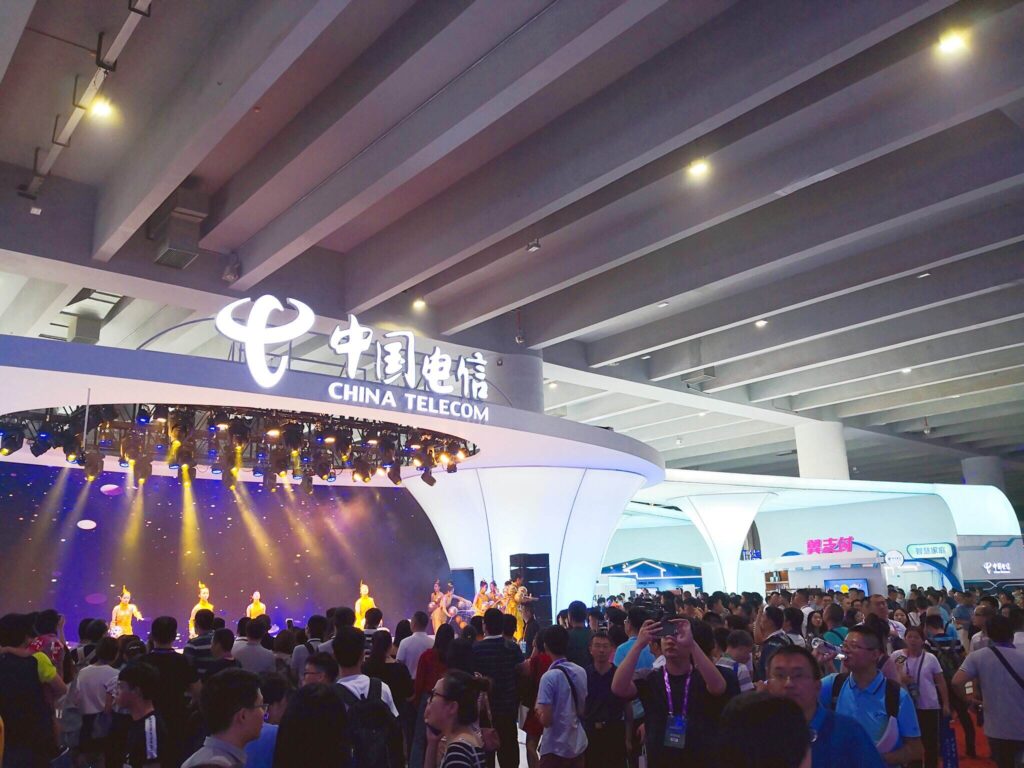On September 13, China Telecom hosted the 10th Tianyi Smart Ecosystem Expo at the Guangzhou Canton Fair Complex. The event focused on 5G, VR/AR wearables, artificial intelligence, smart homes, and other fields, showcasing and releasing new achievements and applications of the intelligent new era such as Cloud VR, smart homes, and cloud computing.
At the “New Dimension, New Vision” Cloud VR product launch jointly organized by China Telecom and Huawei, the Cloud VR product was officially released. Dozens of virtual reality industry chain partners from chips, terminals, platforms, content, and other fields gathered together to attend the product launch ceremony. China Telecom Vice President Gao Tongqing stated at the event that Cloud VR is a key product in the smart home direction following the establishment of the BJIC Business Joint Innovation Center by China Telecom and Huawei. It is also an important step in building a “Magic Cube Ecosystem” that fosters shared value, mutual benefit, and co-creation with industry chain partners. With over 150 million broadband users, China Telecom is confident in leveraging its advantages in networks, cloud computing, and smart homes to collaborate with the industry chain to achieve widespread adoption of VR products in the Chinese market and promote the vigorous development of the VR content ecosystem. China Telecom Marketing Department Deputy General Manager Lü Pin formally introduced the “One Cloud (Cloud rendering), Two Networks (VR gigabit bandwidth network and home smart networking)” VR experience model for the first time at the launch. The Cloud VR solution involves migrating the rendering processing required for VR content from local devices to the cloud, then transmitting the rendered results back to the VR all-in-one device via the network. This significantly reduces the hardware processing requirements for VR all-in-one devices, enabling “thin” terminals and allowing users to experience VR games without relying on expensive high-configuration computer hosts. Through industrial collaborative development, unified standards for terminal VR hardware, and large-scale customization, Cloud VR can significantly lower the entry barrier for VR experiences. In terms of VR content, by migrating applications (such as games, videos, education, etc.) to the cloud, creators’ copyrights can be effectively protected, and excellent VR content can be continuously updated. China Telecom aims to develop Cloud VR into the next tens-of-millions-level business for smart homes within the next five years, bringing a immersive entertainment experience to its broadband users. In the Cloud VR demonstration area of the Smart Life Pavilion, domestic renowned VR brand DPVR showcased VR experience content such as games and films based on the Cloud VR solution. Attractive content like 8K ultra-high-definition 360-degree panoramic videos drew many attendees to experience it firsthand.In the realm of cloud VR gaming solutions, the DPVR Panoramic Sound 3D Giant Screen Theater achieves seamless compatibility with cloud VR. Players only require a single optical positioning device to enable dual 6DoF operation for both the headset and remote controllers, allowing wireless enjoyment of large-scale VR games. Moreover, this solution currently stands as the most cost-effective 6DoF VR experience available on the market.
Beyond its full support for various cloud VR technologies, the DPVR Panoramic Sound 3D Giant Screen Theater enhances the cloud VR gaming experience. As the next hundred-billion-yuan business for Chinese telecom operators’ smart homes, it is reasonable to believe that cloud VR all-in-one devices may gradually replace traditional home entertainment systems like televisions in the coming years, delivering more stunning immersive entertainment experiences.

